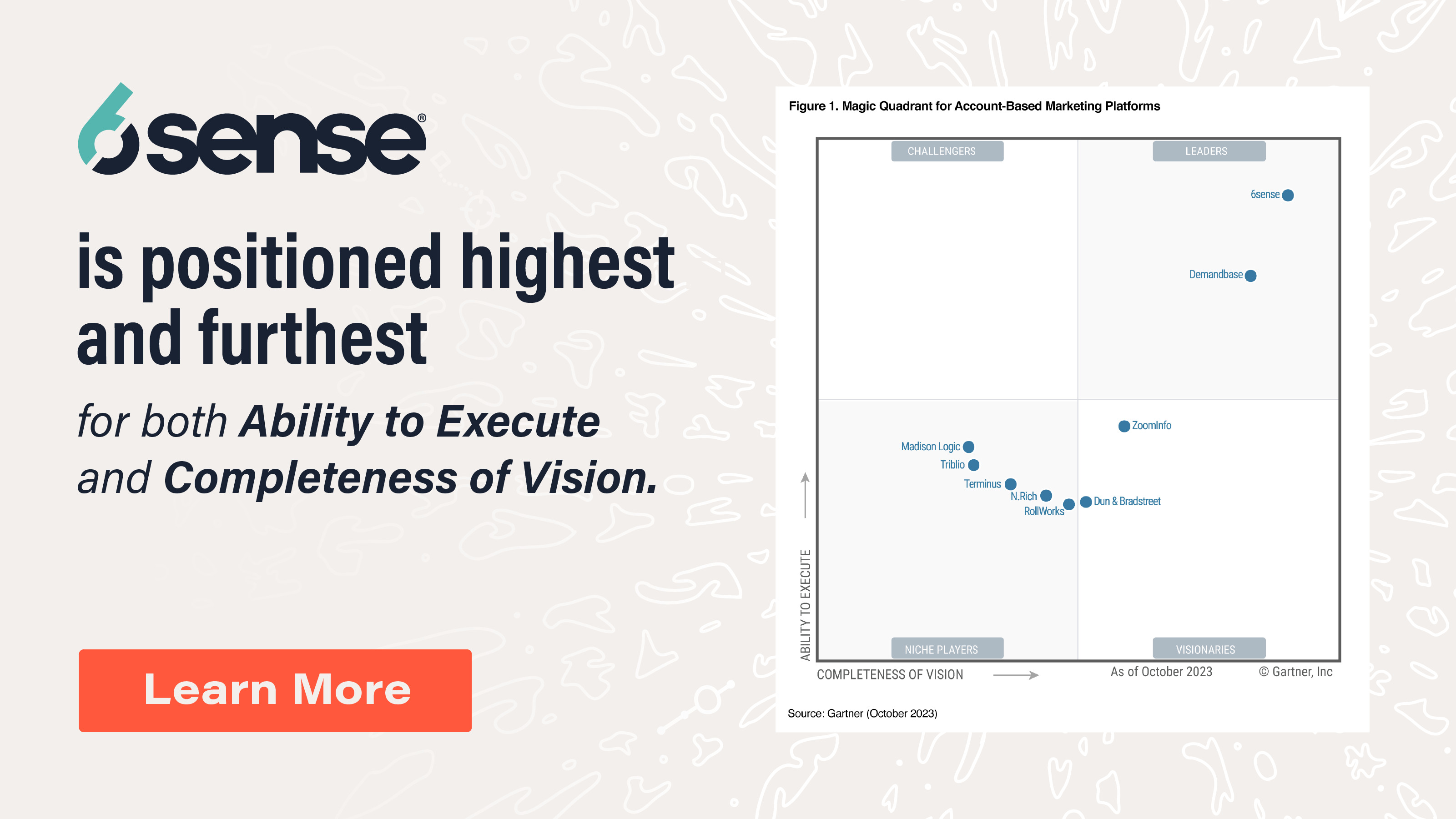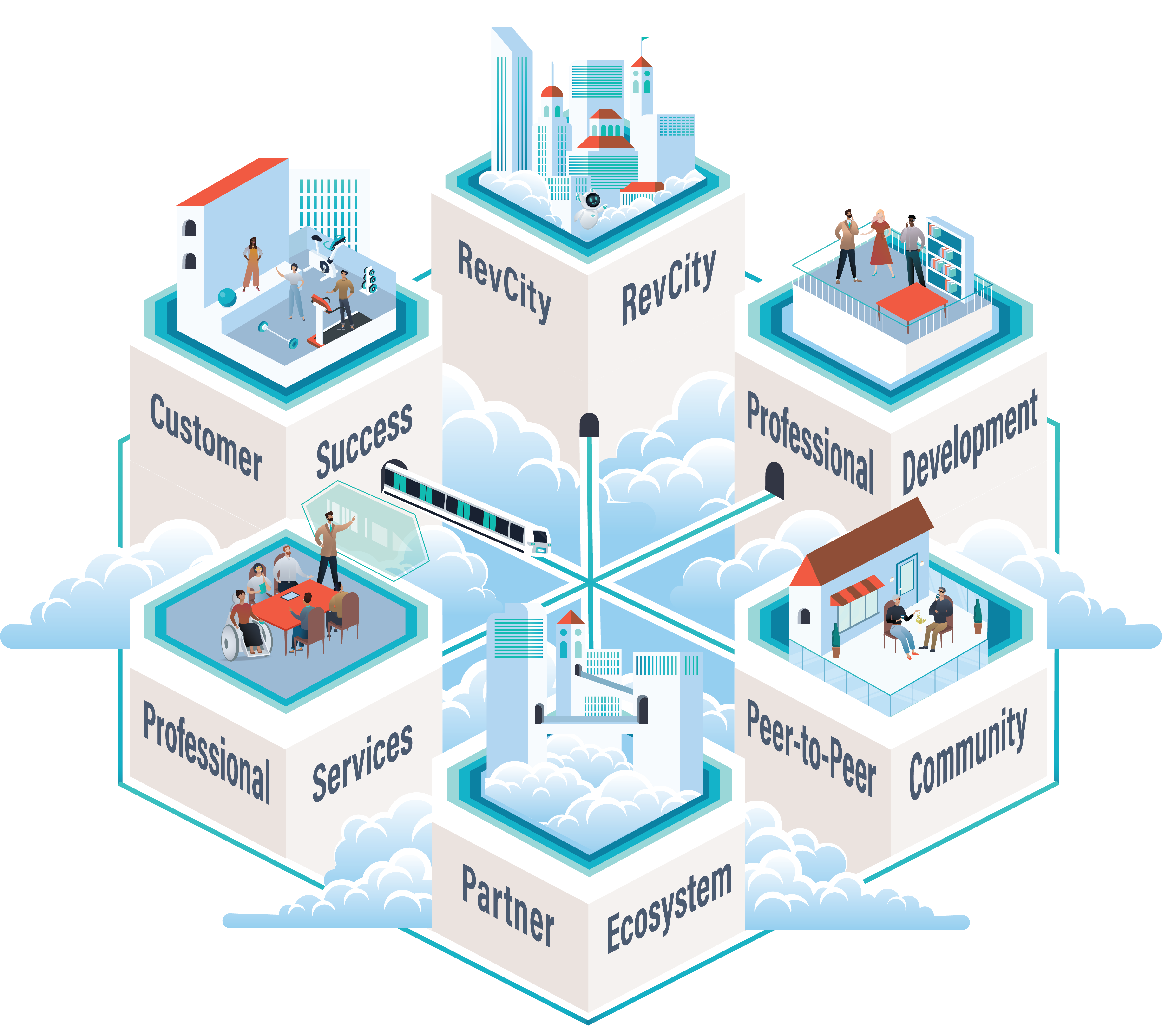What Is Account Mapping?
Account mapping is a practice that enables businesses to understand prospects and reach customers. It helps you organize the people in charge of specific accounts.
Marketers use account mapping to develop a strategy for targeting accounts within an ABM (Account-Based Marketing) approach.
The strategy helps you understand the decision makers, the most relevant markets, and the personas you need to reach with your marketing efforts. It also lets you know the customer problem you can solve with your solution.
Benefits of Account Mapping Software
An account mapping process enables you to identify key relationships when executing an ABM strategy. It’s also significant in implementing B2B marketing campaigns to increase marketing outcomes. Here are the benefits.
1. Correct Campaign Timing
Account marketing enables you to carry out a campaign when customers are likely to buy. The mapping allows you to know the budget cycles of target customers, making it possible to identify when to launch a campaign—and for how long you should run it.
Campaign timing is important. When you launch too early, customers might not be ready to buy. Conversely, if you launch too late, the market might be crowded, making it difficult to beat competitors.
2. Campaign Clustering
Marketers can use account mapping to identify target accounts and their characteristics. Understanding a customer’s job role in a company and their seniority level is crucial for an ABM strategy. It’s also useful for a successful marketing campaign.
Account mapping enables B2B marketers to:
- Describe their target audience
- Plan for each stage of a buyer’s journey
- Create brand recognition and loyalty necessary to resonate with prospects
- Improve offerings and marketing campaigns
3. Maximize the Use of CRM Data
Your company’s CRM has valuable data about your accounts, and you can use that information in an account map. Relevant data lets you know the right person to contact and the best path to follow when selling.
Marketers also use the data to develop a better understanding of an organization and how to interact with key people on the path to a sale. As a result, the mapping enables a business to perform a value-based sale.
4. Track the Progress of the Sale
Account mapping enables you to track influencers, champions, buyers, and blockers along the path of a sale. It lets you see progress during pipeline reviews and makes you confident when communicating how you started and hoped to finish the sale.
Marketers can see where a sale stands, and leaders can decide about a specific account.
5. Transitioning Accounts
Account mapping is useful when transitioning accounts from one sales rep to the next. An outgoing sales rep can seamlessly transition an account to a new sales rep. The new salesperson will then quickly review a sale’s history and continue with the selling process.
An account map is a living document that’s up to date, and new users can reference and build on it. This helps businesses to save time and ensures no customer is lost during an account transition.
Best Practices of Account Mapping
Best practices allow you to correctly implement account mapping and enable your business to visualize and plan sales approaches. It helps you understand and improve revenue as you generate new leads. Here are the best practices to consider.
- Establish a consistent and clear account mapping process to accurately map all customer data.
- Ensure the account mapping document outlines each account’s processes, roles, and responsibilities.
- Ensure users can only access the information they need and not sensitive data.
- Keep access rights up to date, and monitor them regularly.
- Speed up the process using automation and account matching tools that help reduce the time for account mapping.
- Implement Role-Based Access (RBA) and assign permissions to users based on their roles.
- Add extra security to sensitive accounts using multifactor authentication.
Account Mapping Example
Account mapping is a tool that helps you visually represent relationships and data points in a target company. It’s possible to represent such information in an organizational chart. The chart will include information such as:
1. Decision-Makers
Decision-makers in a target company decide if and when a project can proceed. In B2B sales, decision-makers are often in the C-suite levels, and they can make decisions without the approval of others.
A decision-maker can also be an initiator who starts a buying process. For example, a CIO or CFO appoints an initiator to start the process and identify the requirements of a product.
2. Buyers
A buyer is the person that makes the purchase. Buyers write the check, and they trust the decision-maker’s choice. After seeing evidence that backs up the need for a product, buyers will authorize the payment of vendors.
3. Champions
A champion in an organization believes in your product and advocates for it. They are stakeholders within your prospect’s company who help sell your products to their colleagues.
A champion can help conduct a marketing campaign and introduce your business to key decision-makers. They also help you understand the minds of decision-makers and the purchasing criteria. Champions can give you the company metrics that will put you ahead of competitors.
4. Influencers
An influencer can convince a decision-maker to decide on the final purchase. They can be end-users that tell others why they need your product.
5. Gatekeepers
A gatekeeper makes sure nobody makes irrelevant contact with decision-makers or disturbs them. They listen to a sales campaign and decide whether it will benefit the company.
6. Blockers
A blocker might be negative or unresponsive and stall a sale. They might stop answering phone calls or responding to emails.
Blockers can also influence other stakeholders about the purchase. They hold mid-level or junior positions in a prospect’s company and are in charge of research.
Make Account Mapping Part of Your Strategic Approach
Account mapping is a process that provides you with a holistic view of customers and enables you to track influencers, buyers, blockers, and champions. Building an account map immediately after you start working on accounts helps improve your ABM strategy and B2B marketing campaign.
It’s a crucial process that promotes effective marketing, and the account mapping document is a helpful reference throughout the sales cycle. Implementing best practices in creating a clear mapping process makes your business efficient.





